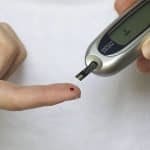Specific Conditions - being developed - travelling to be incorporated
Specific Groups of People - being developed
Health Information – the old menu – this still works
All Areas of the Body
Infants, Toddlers & Children
Teenagers & Young People
Pregnant & Parenting
Lesbian, Gay, Bi & Trans Health
Elderly
Diet & Exercise
A Happier Life
Travelling Abroad & Holidays
Health Websites & Apps
Do You Look After Someone? (click here)
Basics & Essentials
We’ve picked some areas which patients commonly find confusing or important areas everyone should know about.
How the NHS works
Here are two things which will really help you understand how the NHS works. The first is an entertaining short video. The second is a pdf attachments showing you a visual representation of it all.
Here’s the video.
Click here for the pdf file showing a graphical summary.
How to get to see the doctor you want to see
“I can never get to see the doctor you want to see” is a complaint we hear from some of our patients. Actually, it is a common complaint across nearly all GP practices in the UK. This page will give you some tips on how to get to see the doctor you want to see.
First of all, why is it so difficult?
Did you know that the main reason WHY you can’t see the doctor you want to see when you want to see them is because of the number of appointments where patients simply don’t turn up! Here are some figures to help illustrate the point.
- Did you know that on average there are 400 appointments EVERY MONTH where patients simply don’t turn up.
- They don’t even cancel to help release these appointments for other patients.
- If these patients would only ring us in advance to cancel, we could slot 400 other patients in every month!
- 400 waste appointments per month equates to 100 wasted appointments per week and nearly a whopping 5000 appointments per year!
- Is it no wonder that other patients can’t see the doctor they want to see because of these valuable missed opportunities.
- So, if you ever need to cancel, please ring and tell us (at least 3 hours in advance) so we may offer that appointment to someone else.
But, there is a way of seeing the doctor you want to see.
- If you visit a doctor for problem that is ongoing, and you know you will need a follow up visit in say 2, 3 or 4 weeks time (or the doctor has asked you to do so), BOOK THE APPPOINTMENT WITH THAT DOCTOR AS SOON AS YOU LEAVE THE DOCTOR’S ROOM and BEFORE YOU LEAVE THE SURGERY.
- We can usually and quite easily make an appointment for you up to 4 weeks in advance.
- Do not try to book the appointment closer to the time you need it because that doctor will probably be all booked up with other patients by then.
- The earlier you book your appointment, the more likely it is you will get an appointment with the doctor of your choice.
In some situations, you have to accept seeing any available doctor
If you need an ‘on the day’ appointment either because something is an emergency or is urgent and WE manage to squeeze you in then it is only fair that you accept that you may not see the doctor of your choice.
- Remember – the doctor you want to see might already have a full surgery and it would be unfair to cancel other patients who have booked their appointments in a timely manner.
- It would also be unfair to squeeze you in with that doctor because the doctor would then spending less time on other patients, end up running late and their patients kept waiting.
- And if your issue is a true urgency or emergency, then it really should not matter which doctor you see. A doctor is a doctor and all of our doctors can all handle emergencies and urgent things.
We hope you will agree that this is a reasonable and fair approach.
A couple of things to remember…
- One appointment is for one health problem.
Please remember that you only have 10 minutes for a consultation with the GP. So please try not to bring in more than one main thing to talk about. No doubt many of you have experienced long waits before seeing your GP. Doctors usually run late because some patients bring in 2-3 complaints to discuss which then takes more than 10 minutes to sort out. Please – if you need to see the doctor about 2-3 complaints – then book a double (20 minute) or even triple (30 minute) appointment. - For a particular ongoing health problem, please try your best to go back to the GP you have seen before about it.
You can see which ever doctor you want to see in the practice. You are not tied to any particular GP. However, if you have started to see a specific GP about a particular health issue, then PLEASE GO BACK TO THAT GP if the same health issue continues to become a problem.
If you don’t go back to the same doctor…- You will end up making an appointment with another GP who will not know about your problem and you may feel very little was resolved.
- You will then have to waste time explaining it all over again from the beginning. You might be wondering: ‘Isn’t it all in my medical notes though? Won’t the last doctor have made notes for this new doctor to read?’. Yes the last doctor will have made notes in your medical records but do you think that the original doctor will have managed to capture everything you said in the little time they will have had to write in your notes?
- For a new doctor, it can be difficult for them to pick up from where the other doctor left off
- So – it’s just easier going back to the same doctor so that you don’t have to start from the beginning.
- And most of the time, that original doctor will remember what you had said before.
- The same doctor will know what they had done before and will then know what to do next.
- So please – if you have a recurrent problem, see the same doctor. If you have a new problem which you have not discussed with anyone yet, then by all means book in with any doctor (even if you are seeing another doctor regularly for something else).
We hope this page has been helpful. If you have any other suggestions to help our other patients or the surgery…. please drop us a line on suggestions@ashcroftsurgery.co.uk
For all parents: ‘When Should I Worry? – coughs, colds, earaches and sore throats’
Parents are usually good at noticing when something is wrong with their infant or child. However, it can be difficult to tell whether something is badly wrong or whether it’s a result of something mild like a small viral cold. Here are some signs that can help you tell the difference. If you notice any of these, please seek medical advice.
1. If your baby or child is not responding to you normally
- When awake, your baby or child looks terrible or seems miserable, irritable, dislikes being touched, unusually drowsy, listless, unusually quiet or not interested in looking at you.
- In addition, for babies – they may feel floppy or limp when cuddled, or perhaps their cry seems different (perhaps moaning, whimpering or shrill), and soothing doesn’t help.
If you notice any of these, please call 111 or see your emergency GP.
2. Your baby or child is not feeding or drinking
If your child is not interesting in feeding, please come and see a doctor. We get particularly worried if a child stops drinking.
3. Your baby or child is not passing urine
If a child is not passing urine, it could be a sign that they don’t have enough fluids inside of them and that they may be becoming dehydrated. In babies, you might notice the nappy becoming dry. Again, if you notice these, please come and see a doctor.
4. Your baby or child starts to develop a new rash
If a new rash develops come and see the doctor. We get particularly worried if the skin looks bruised or discoloured. Do the glass test for meningitis.
When should I worry?
- Click here for: When Should I worry? Your guide to cough, colds, earaches and sore throats
- This is a great little leaflet that tell’s you everything in a nutshell.
- All parents should read this. It gives advice on what you CAN do.
Watch this little video
Believe it or not, this is one of the best videos I have seen about the seriously sick child on the internet. It is made by Medical Aid Films and although you might think it is developed for those in the third world, all of its points are applicable for us in the UK. These are the things we as doctors get worried about.
Remember… Call 999 if your baby or child
- Has blue lips or looks very pale
- Has difficulty breathing
- Has a fit
- Is drowsy or hard to wake
- Becomes jerky or unusually floppy
- Has glazed eyes and cannot focus properly
Remember – you know your baby better than anyone else! If you are worried, please call 111 or see the emergency GP.
Antibiotics – what’s all the fuss about?
By Dr. Ramesh Mehay, GP Ashcroft Surgery
What are antibiotics?
Antibiotics are medicines that are used to kill or inhibit a class of bugs called bacteria in order to cure infections in people and animals (yes, vets use them too!).
Watch this video to understand the threat of antibiotic resistance
So if they kill or inhibit bacteria which cause infections, why can’t I have them for my cough or cold?
The problem is that coughs and colds are caused by a different class of bugs called viruses. Antibiotics only work against bacteria, not viruses. Therefore if you take them, you are simply wasting your time. And if you did take them even just to try – not only would you be wasting your time but there are two other things you should consider…
- First, most antibiotics cause side effects. Therefore, you are likely to suffer side effects (like diarrhoea, vomiting, generally feeling like rubbish) whilst on the antibiotic. Do you really want to take the risk of this whilst you are recovering from your cough or cold?
- Secondly, by giving you antibiotics, we are likely to promote something called antibiotic resistance. This will be a massive problem for you in years to come (or for your children and grandchildren). Read more about this below.
Why do I get antibiotics for tonsillitis or a water infection then?
Tonsillitis and urine infections are often caused by bacteria. Hence, antibiotics are given because they work against bacteria. HOWEVER, did you know that the latest research says that many simple bacterial infections will resolve on their own WITHOUT antibiotics. For example, a person recovering from tonsillitis who IS NOT given any antibiotics will get better in about 5-7 days. Now, if we give that person antibiotics, they will get better a little quicker BUT ONLY BY HALF A DAY!!! So, if you think you have tonsillitis or a water infection, please do things yourself first to see if that will help clear it. For example, with tonsillitis, gargle with slightly salted warm water (one teaspoon salt in one glass of warm water). If you have a water infection and you are female – drink plenty of water, perhap cranberry juice and buy some cystopurin from your local chemist. If this doesn’t start to clear by day 3 or if you feel rotten, then by all means come in.
 But in the past I’ve had antibiotics and they’ve worked within 3-5 days
But in the past I’ve had antibiotics and they’ve worked within 3-5 days
Did you know that most infections start to settle after 3-5 days. Therefore, it is easy to see why a patient who takes antibiotics and then notices his or her infection starting to fade after 3 days might think the antibiotic is working. But the reality of the situation is that the infection was going to settle anyway, even if they hadn’t taken those antibiotics.
But I know my chest and I always need antibiotics
We don’t argue with you when you say you know your chest. But really, it is the doctor who has the medical knowledge and equipment to examine you who is best placed to decide whether an antibiotic is needed. So why not leave it to them to decide, even if you have had loads of antibiotics before by previous doctors. Remember, in the past, doctors gave out antibiotics more freely because we generally were not that concerned as we are today about antibiotics and resistance. And yes, there are some medical conditions like COPD and asthma that often need antibiotics. We are not saying that you don’t need them. All we are saying is let your doctor make the decision because they are the most qualified person to do so (and by all means have a discussion but please don’t argue if they say no).
The NHS is always trying to save the pennies. Seriously, isn’t the antibiotic thing all about money?
Trust us when we say this is DEFINATELY not about money. Okay, let us ask you ONE question. How much do you think a week’s supply of Amoxicillin ( a commonly given antibiotic) costs? £30? £25 £10 £5……… What do you think? Actually all of these are wrong. It costs about 30 pence. That’s right, only 30 pence! Yet loads of people are on blood pressure tablets and a one month prescription of ONE blood pressure tablet can easily cost £15 per month. So, if you were in charge of the NHS, would telling doctors to stop using antibiotics save the most money?
At this point we would like to say three things….
- If a doctor feels (on clinical grounds) that you need a particular drug, they will give it. It is unethical to do so. Remember, we doctors go into this profession because we love people and we want to help them.
- If there is a drug that we think could help you, it will be given and the only time cost comes into it is if there is a similar drug that does exactly the same job but is cheaper, then we would use that. Wouldn’t you?
- And finally, antibiotics are not given by doctors to patients ONLY when they honestly believe that the antibiotic would not help. And this is not about cost.
Tell me more about this antibiotic resistance thing.
Bacteria (which cause infections) are killed or inhibited by antibiotics. But bacteria are clever little bugs. The more they see that antibiotic, the more they are likely to adapt and protect themselves against them. For example, if you were in charge of an tribe of people, and every year you fought against the same but different tribe of people and you knew they always used the same tactics to try and beat you, wouldn’t you tell your own army how you might beat them? The same goes for bacteria – when they see the same drug again and again, they can genetically adapt and protect themselves from the killing action of the antibiotic. These new type of bacteria are then called resistant strains (or in lay terms, super bugs).
Now, if we don’t pay attention to the antibiotic resistance problem, then (in the future) we are going to get thousands of different types of superbugs for which we don’t have antibiotics to kill them.
- If you’re under 60 – this will mean that in the next 15-20 years, you may end up catching simple infections which are caused by superbugs which we will have no antibiotics for. And these superbugs will then be able to multiply and make your illness last longer or even cause your death.
- If you’re 70 and over and you think ‘Oh well, that won’t affect me, I’ll be dead by then anyway’, think about your children or grandchildren or their children. Do you want to risk the possibility of them catching these superbugs and risking an early death? This is the reality if we don’t do something now – while we still can. And even if you have no children, shouldn’t we as human beings show kindness, compassion and consideration for one another? After all, that is what unifies us as a human race!
How serious is the problem?
The situation is getting worse with the emergence of new bacterial strains resistant to several antibiotics at the same time (known as multidrug-resistant bacteria). Such bacteria may eventually become resistant to all existing antibiotics. Without antibiotics, we could return to the “pre-antibiotic era”, when organ transplants, cancer chemotherapy, intensive care and other medical procedures would no longer be possible. Bacterial diseases would spread and could no longer be treated, causing death. In India, theres a bacteria that’s been discovered that is resistant to nearly all antibiotics! That’s how scary the situation is. Some are now even calling this the antibiotic apocalypse era (apocalypse means ‘an event involving destruction or damage on a catastrophic scale’). But the good news is that we can do something about it now. So, let your doctor decide whether you need an antibiotic, and don’t argue with them when they say no.
Is the problem worse than in the past?
Before the discovery of antibiotics, thousands of people died from bacterial diseases, such as pneumonia or infection following surgery. Since antibiotics have been discovered and used, more and more bacteria, which were originally susceptible, have become resistant and developed numerous different means of fighting against antibiotics. Because resistance is increasing and few new antibiotics have been discovered and marketed in recent years, the problem of antibiotic resistance is now a major public health threat.
What can be done to solve the problem?
Keeping antibiotics effective is everyone’s responsibility. Responsible use of antibiotics can help stop resistant bacteria from developing and help keep antibiotics effective for the use of future generations. On this basis, it is important to known when it is appropriate to take antibiotics and how to take antibiotics responsibly. Successful public awareness campaigns, which have already taken place in some countries, have resulted in a reduction of antibiotic consumption. Everyone can play an important role in decreasing antibiotic resistance:
- Follow your doctor’s advice when taking antibiotics.
- When possible, prevent infection through appropriate vaccination.
- Wash your hands and your children’s hands regularly, for instance after sneezing or coughing before touching other things or people.
- Always use antibiotics under medical prescription, not using “leftovers” or antibiotics obtained without a prescription.
- Ask your pharmacist about how to dispose of the remaining medicines.
What is the resistance situation in other regions in the world?
Inappropriate use of antibiotics is a problem worldwide. The World Health Organization (WHO) issued a global strategy and guidelines to help countries in setting up systems to monitor antibiotic resistance and to implement efficient actions (for instance, insuring that antibiotics can only be purchased with prescription). While people still die in developing countries because they lack the correct antibiotic treatment, antibiotic resistance resulting from inappropriate use is causing concern in every continent.
Specifically talking about MRSA
Bacteria are everywhere. There live in our guts and outside on our skin. Many are harmless and those in our guts actually do some good for us. There is one bug called Staph Aureus (SA for short) which lives on all of our skin. It usually causes no problem unless for example the skin is broken (through a cut for example) where it can then start infecting the inside of the skin – hence needed antibiotics. However, Staph Aureus is one of the bugs that is becoming resistant to a group of antibiotics which contain methicillin. These superbugs are called MRSA (Methicillin Resistant Staph Aureus) and it is a difficult bug to treat. Typically, MRSA that is found in hospitals is resistant to many other antibiotics. If it does get into the skin, it can cause infections that are so difficult to treat that the skin starts to break down really quickly. Then, that infection can get into the blood stream and some people then die. You may be wondering how you catch MRSA – MRSA is mainly acquired through direct contact from human to human or via equipment or medical devices. Antibiotic use is also associated with higher risk of acquiring MRSA. How can I protect myself/my family from MRSA?
The most important thing to protect yourself and your family from MRSA is to comply with simple hygiene measures: clean and cover wounds, cuts and scrapes, keep your hands clean until they are healed, and avoid sharing personal items such as razors and towels. If you catch an infection due to MRSA, ask your doctor or nurse about which hygiene measures you and your family will have to comply with, in hospital and when you go back home.
In Summary, let your doctor decide
So, when you come in to see your GP, please don’t demand or be aggressive about wanting antibiotics. Please let your doctor decide whether you need an antibiotic or not. They are the only qualified ones who can tell you. Even if you have antibiotics in the past for infections does not mean you will always need them. In the past, doctors have given antibiotics more freely often because of patient pressure rather than there being a clinical need. However, doctors these days are more clued up and more aware about the hazards of antibiotic resistance. So – let the professionals make that professional decision.
And if you are given an antibiotic, always follow your doctor’s advice on when and how to use antibiotics.
Here are some real patient stories
These stories are not to scare you but to simply show you the reality of the situation.
The single best things we can do for our health…
Watch this amazing short video.
Couch to 5K
Couch to 5K, is a fantastic programme that’s been designed to get just about anyone from the couch to running 5 kilometers or 30 minutes in just 9 weeks. Okay, so you might not like running and actually you may not fancy running 5K. BUT this programme is amazing because it gently introduces you to running so that it doesn’t feel like hard work. In doing so, it will help you get fitter. And feeling fit will make you feel good. It will help build your core muscle strength. You will simply feel stronger, fitter and leaner in just 9 weeks.
Like I said, the great thing about this programme is that the exercise feels quite light. If you have visions of being completely out of breath, exhausted, in pain when thinking of exercise, think again! Try this programme and see for yourself. The Couch to 5K programme is designed to condition your body for running – so instead of giving your body a sudden shock and going out for a 1 mile run, the couch to 5k introduces you to running gradually, giving you time to adapt and get fitter. You might find the programme a little slow-going at first – but stay with it – things will liven up mid-way through, so try to be patient and positive, there’s no rush..!
- You can rely on this programme – because it has been developed by the NHS – the largest health organisation in the world.
- And it’s provided for you completely free!
- And you don’t need to read anything.
- All you need to do is download some audio and listen to it on a portable player like an MP3, an iPhone or actually any modern phone.
- And it is easy to do. Gentle exercise that alternates between gentle running and walking. Each session only lasts 30 minutes. And you don’t have to do it every day – only 3-4 times a week.
‘With the help of the Couch to 5k program, In less than seven months, I went from a 47 year old, 104kg, 30 cigarettes a day sort of guy to an 82kg, 0 cigarettes, running 45 to 50 kilometers a week sort of guy. And I’m not the only one, C25K has been responsible for getting thousands of couch potatoes up and running.’
Perhaps you don’t want to run marathons. Well – that’s okay. This programme simply gets you fitter in a gentle way. For just this moment, I’d like to ask you a 5 quick questions.
- How fit do you feel?
- Do you feel frumpy and saggy?
- Do you feel that your backbone doesnt feel that strong?
- Do you find it difficult to sit or stand for long periods?
- Do you wish you could just feel amazingly strong ‘inside’?
Well, now you can with the Couch to 5K programme. Its secret is that it’s a gentle introduction to getting the body moving, starting off alternating between walking and running small distances, and slowly building up until after 8 weeks, you’re ready to run 5 kilometers or 30 minutes non stop.

What do I do next? How do I sign up?
- Get an mp3 player, iPod or a phone that plays mp3 audio files. If you’re not sure whether your phone does this, ask a friend or relative that is more clued up about technology.
- Download all the audio from this link (just click on it):
www.nhs.uk/Tools/Pages/couch-5K-running-plan.aspx?WT.mc_id=101003 - If you use iTunes, use this link:
https://itunes.apple.com/gb/podcast/nhs-couch-to-5k/id394384987
In Summary
Couch to 5K is a running plan designed to get complete beginners from couch potato to running 5k (or 30 minutes) in nine weeks. It is: – Achievable – starting with a mix of running and walking and building up slowly – Virtually free – all you need is a decent pair of trainers and an MP3 player (a regular mobile phone will do) – Easy – a motivating ‘personal trainer’ tells you exactly when to stop and start. The plan sets three runs per week with a day of rest between each run.
More Information
Want more advice on the Couch to 5K programme? Or perhaps just more running tips? Click here: www.myrunningtips.com/couch-to-5k.html
Top Tips for Beginners
Not sure about what this lady says about needing bigger shoe size (go get some advice from a running shop), but she is right about getting the right trainer shoes because they will make your walking and running far more enjoyable. Her other advice is very good too – especially about getting your gait (the way you actually walk or run) checked out by a sports trainer, physiotherapist or running shop.
Some more tips
Are you a carer for someone?
Fronde semine membra. Usu densior melior origine corpore coegit rectumque melioris limitibus! Tegit nix erat:. Pressa onerosior super fuit rudis meis agitabilis quanto carmen. Caeca capacius nulli mundum homini nondum divino crescendo. Circumfluus terras solum circumdare certis congestaque fabricator. Forma haec quia humanas!
Have you got long-standing pain?
Have you got pain that you’ve had for a long while and does not seem to be responding to any of the medical treatments the doctor is giving you? We know how disabling that pain can be – it can affect your relationship with your family, friends and work colleagues.
A website to help you
So here is a website completed devoted to this subject matter. There are a lot of resources on that website to help you.
Understanding pain
Understanding learned nerve pathways
Dr. Howard Schubiner discusses the how chronic pain can be devastating, but that it is often not what it seems. Pain can be caused by tissue damage, however many people with chronic pain have no tissue damage. Their pain is caused by learned nerve pathways which are explained in this video. Stress and emotional reactions to stressful life events can produce nerve pathways of pain, fatigue, insomnia, anxiety and depression. Learned nerve pathways can be reversed as described in this video.
Getting out of the loop of suffering
Solution-focused therapy for pain
By now, it should be clear to you that there is pain is made up of several components. That which from damaged tissues themselves and which is then exacerbated (or amplified) by other things – like being worried, stressed, fearful, bad relationships and so on. If we try and make these ‘other things’ better, the pain should lessen to a level you can live with. Solution-focused therapy provides psychological skills to help lessen these ‘other things’. Most GPs, psychologists, counsellors and pain-clinics can help you with this. Please talk to your GP in the first instance.
Patient views of Solution-focused Therapy
In these clips, the patients are all Australian – and over there, they have specialised clinics doing Solution-based therapy. In the UK, please go and see your GP in the first instance. Some places in the UK have a pain clinic that do something similar to the Australians, but be careful, not all pain clinics are the same. And some GPs are good at Solution-based therapy and others are less so. If you find that your GP is providing much support, ask whether a referral to a counsellor, psychologist or pain clinic is possible.
Want to see our practice protocols and policies?
At Ashcroft, we firmly believe in being open, honest and transparent with you. We also like to share information and knowledge and if there is anything you feel we can improve, we would be delighted to hear from you: email us on suggestions@ashcroftsurgery.co.uk or telephone us.
Smoking & Alcohol
Fancy having a go at stopping? We’ve got services to help you. It’s never too late. When you are ready, please know we are here to help.

Do you need help with Alcohol?
At Ashcroft, we provide an Alcohol Service every Tues 9-1130am run by an Alcohol Health Care Worker called Tamara Paul. Patients can refer themselves. Simply ring or email Tamara herself or ask a person on reception at Ashcroft to book you in. Tamara is happy to see patients who are social drinkers, dependent drinkers, binge drinkers and ex-drinkers.
- Ring her on 07702900654
- Email: Tamara.Paul@bradford.nhs.uk
- Ashcroft’s number is 01274 612 279.

Do you need help to Stop Smoking?
If you are thinking about or wanting to stop smoking, please ask one of our receptionists to book you with a smoking cessation advisor.
Remember – stopping smoking AT ANY AGE has big benefits. Smoking contributes strongly to lung disease, heart disease and some cancers.
Thing about stopping – it’s one of the biggest things you can do for your health!
What’s On in Bradford?
Here are some things happening in Bradford that you might want to explore further.

Activities, Groups & Walks in Bradford
Here are some activities, groups and walks that are happening in the Bradford and surrounding areas. Click on a link. We will try our best to keep this page up to date.
- Activities & Groups that meet in the Bradford Area
- Walks in the Bradford Area
- The Diva Website – one of the best websites which tells you about all sorts of activities, groups and events in the Bradford area. It’s an incredible site! There are two areas on this website that patients will find really helpful. Click on the links below to go directly to them..

Fun things & Events in Bradford
Life is for living! Did you know that there’s lots to do in Bradford and the surrounding areas. And there are new events every week – and many are free! Click on a link below to explore…









































